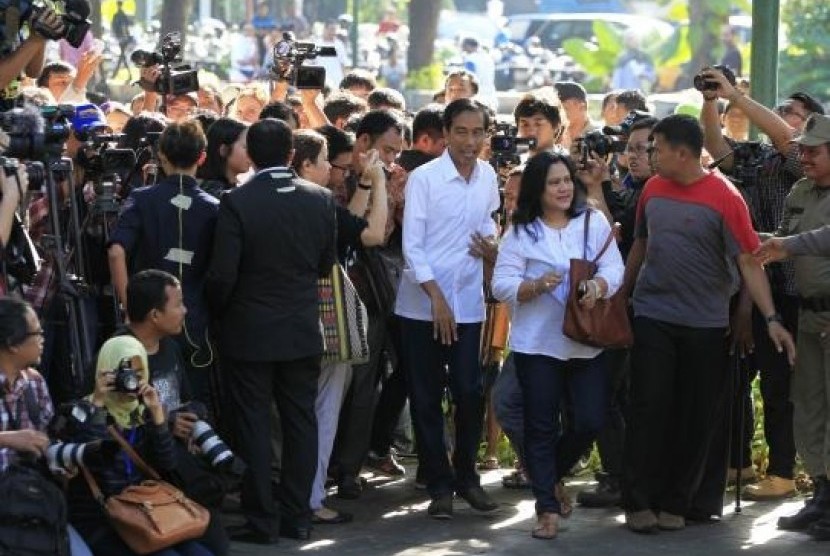REPUBLIKA.CO.ID, JAKARTA - Indonesians voted for a new parliament on Wednesday in a poll expected to be dominated by the opposition Indonesian Democratic Party for Struggle (PDIP), boosting the chances of its popular candidate in a presidential election three months from now.
Already, the star of the election is Jakarta governor Joko Widodo, widely known as Jokowi, whom opinion polls suggest will almost certainly be the next president of Southeast Asia's biggest economy.
But very early quick counts suggested that PDIP, while in front, did not yet have the necessary number of votes that would allow it to nominate Jokowi in July's presidential election without forming a coalition with one or more or the 11 other parties contesting Wednesday's vote.
"I'm very confident. My party will do very well," Jokowi said in English after voting with his wife in central Jakarta.
His party needs 25 percent of the national vote, or 20 percent of seats in parliament, to nominate him on its own. Based on up to 30 percent of votes counted from a sampling of 2,000 polling stations across the world's third biggest democracy, PDIP was in front. But it only had some 20 percent of votes.
However, Tobias Basuki, of think-tank CSIS which is organizing a quick count, said he would not be prepared to call a result until at least 80 percent of the sampling had been counted.
Indonesia has about 500,000 polling stations and more than 186 million registered voters. An official with one election observer, who asked not to be identified because he was not authorized to speak to the media, said turnout appeared to be lower than the about 70 percent in the last general election in 2009.
Indonesia's embrace of democracy since the downfall of former authoritarian leader Suharto 16 years ago has seen four different presidents and repeated change of the leading party.
Predictions of a Jokowi presidency and strong showing by his party have helped lift shares prices and the rupiah, Asia's best performing currency this year, on expectations that it would bring more decisive government. Analysts say if PDIP does do well, markets will likely rise further. The stock market, up 15 percent this year, was closed as Wednesday was declared a public holiday for the vote.
Campaigning has been notable for its lack of policy initiatives to give the economy a boost. Growth is expected to be a little more than 5 percent this year, but has weakened partly on the fall in prices for commodities that still form a backbone for the resource-rich economy.


